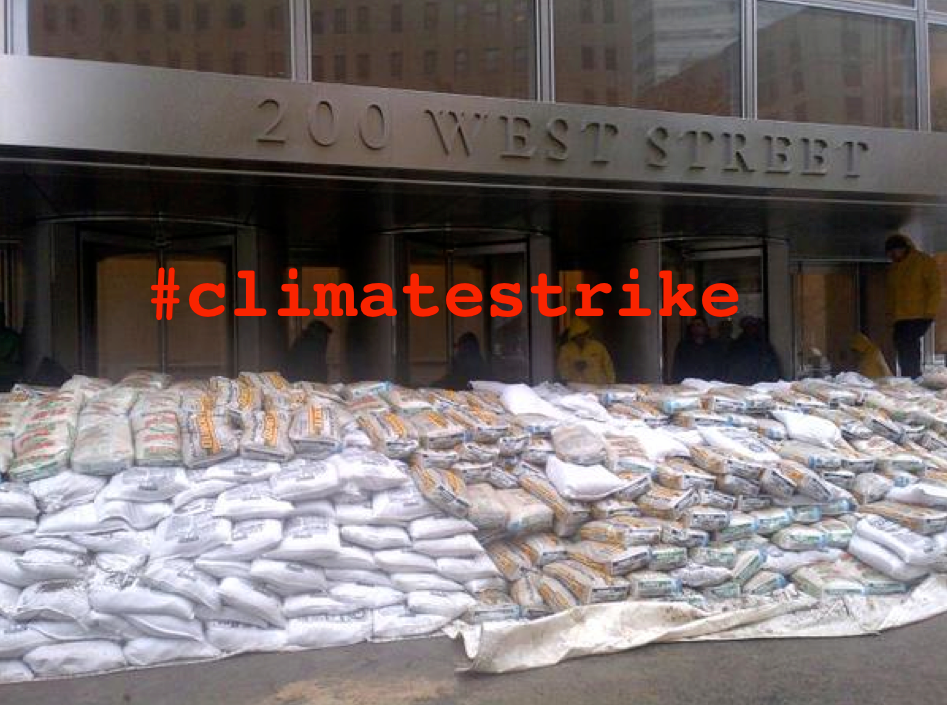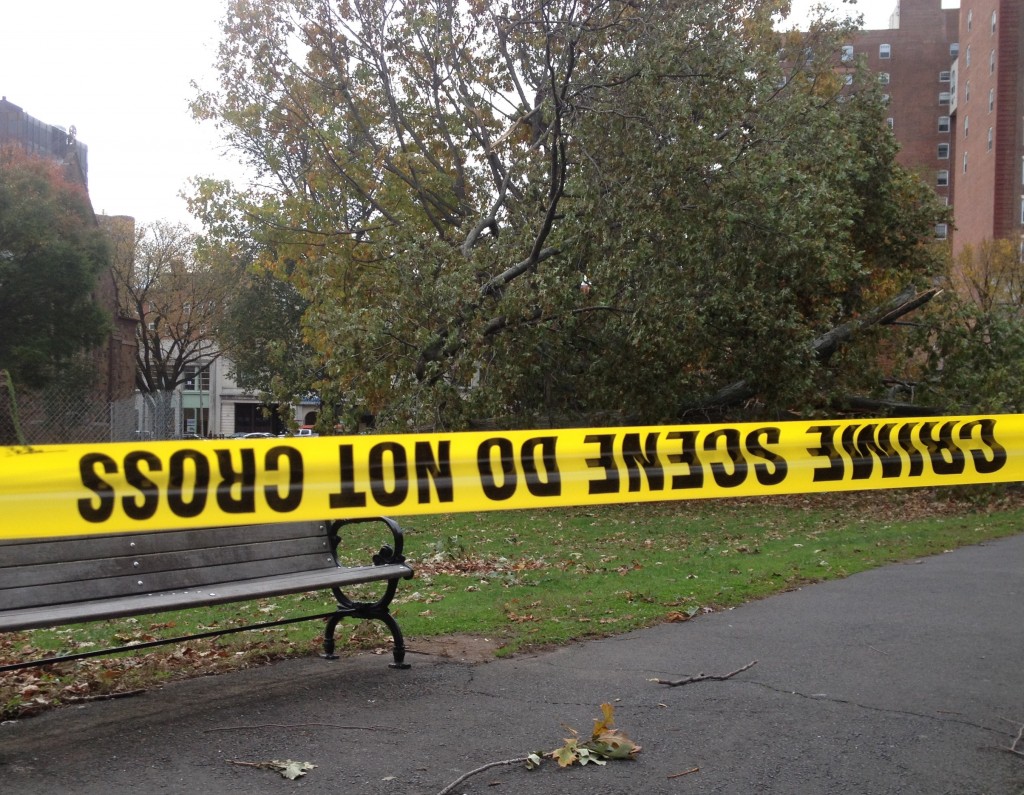I can’t say where this ends up but everything feels different now. I don’t know if this lasts or not. There’s a sense that pieces are falling into place and matters are being put into perspective. Sandy affected an area the size of Europe. It does feel like climate denial is dead. It’s going to cost $50 billion. Which only makes us realize what a scam the bailouts really were. Popular indignation cancelled the marathon, whose only justification was that it would bring in cash. And the election? Obama’s going to win for once again being the grown-up in the room when a crisis hits.
Where do we go with this? If this climate disaster does send people in the direction of solutions rather than barriers, some good could come of it all. We may need to have barriers at the harbors now, but that can’t be all we do. We saw over the past couple of days that it’s only mass transit that keeps New York going. It needs investment in clean technology and better connections. Taxis only made things worse by clogging up roads and driving like lunatics. They have to go. And how ironic is it that the one substance in short supply in the storm-affected area is the one that did most to cause it: gasoline. Can we grow up and do what everyone else in the world does and have ride-shares, park-and-rides and other collective systems now?
Now we also know that you can clean up a Europe-sized disaster for $50 billion but that the same amount would barely prop up a small bank. So we’re getting some perspective on the insanity of the post-2008 settlement. Perhaps the fact that Goldman Sachs was lit up all the way through was just a coincidence. Perhaps. But it’s one of those symbolic moments that suggest a change might be in the air. And the fact that ING, a bank, was the main sponsor of the marathon was definitely one of the reasons it felt so wrong to do it. That and the fact that it was supposed to start in flood-devastated Staten Island.
We’re heading back into the city tomorrow. New England with power is still somehow creepier than a dark city, which, despite all the allegations, has not seen any crime or looting. Here there are non-stop TV ads for an election that seems other worldly. Just as the country now pretends it did not elect George W. Bush (and to be fair, the first time it didn’t), the shameful candidacy of Romney will fade from memory as soon as the counting is done. Which does not give Obama a pass.
Then we’ll see. For the past year, it has sometimes felt like the issues being discussed in this space about climate, debt, mutual aid and democracy were addressing only a small fraction of the people but that it was important to keep that discussion open. Now we can see why it mattered. The mutual aid being carried out by OWS people in Red Hook, Chinatown and the Lower East Side is part of a city-wide effort. Our outrage at the corporations and the climate deniers is finding support from so many of those affected, as well as people like Andrew Cuomo.
For Strike Debt, the Rolling Jubilee is still a great idea and please come and support it! It’s not time to talk about debt strike but about debt abolition as a means to start over in a sustainable way, to cancel debt so that emissions don’t have to be generated to make the “growth” required to pay it back, about mutual aid instead of isolated debt destruction. It’s not about money, it’s about love.
It’s not at all time to declare victory and go home. Things are far too uncertain for that. It just feels different now.


